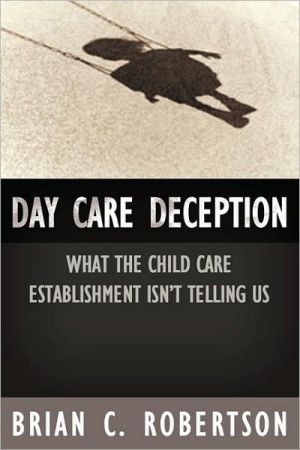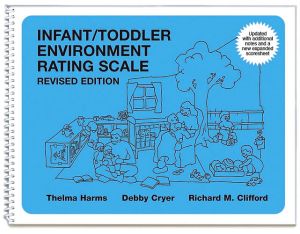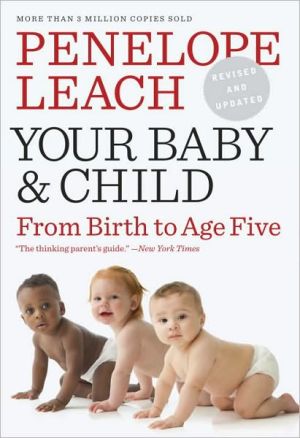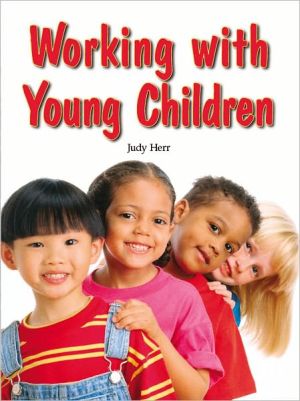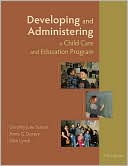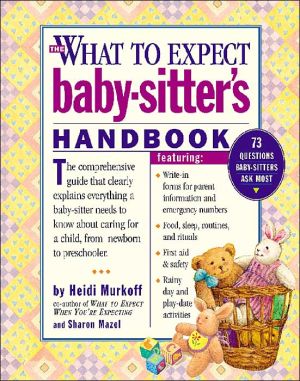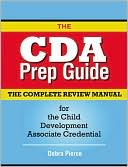Day Care Deception: What the Child Care Establishment Isn't Telling Us
The central issue of day care is often framed to pit conservatives against liberals, working moms against stay-at-home moms, and feminists against traditional families. But the real conflict, as Robertson argues in Day Care Deception, is between all parents and the day care establishment -- a multimillion-dollar lobby with a vested interest in the expansion of subsidized day care services. Robertson reveals how this establishment works to increase its power and silence its critics....
Search in google:
Over the last generation, parents have felt increasingly intimidated by child care "experts" and surrendered their role as the primary educators of their children. Brian Robertson believes that this development has proved detrimental to parents and children alike. Theories of development, often colored by ideological positions on the family and its role in society, should take a back seat to the instinctive understanding parents have about what rearing children requires. Parenting is for parents, he believes, not for child development experts and especially not for day care "professionals." The central issue of day care is often framed in a way that pits conservatives against liberals, working moms against stay-at-home moms, and feminists against traditional families. But the real conflict, as Robertson shows in "Day care Deception," is between all parents and the burgeoning day care establishment itself--a multimillion dollar lobby with a vested interest in the expansion of subsidized day care services. Robertson shows how this establishment works to expand its power and silence its critics. Despite the fact that most reliable studies show that commercial day care has a negative effect on the emotional, psychological and even physical development of children, for instance, researchers calling attention to the correlation between aggression among children and too much non-maternal care have seen their work vilified. Scholars have been brought forth to dispute what until now has been obvious to expert and lay person alike--the crucial role of a mother's attention in early childhood development. Studies proving the importance of early parental care have been twisted to bolster the case for day care on the grounds that day care equals "school" and parents' desire to care for their children selfishly deprives them of a "head start." Every year, as Robertson shows, the day care lobby pours more and more money into state and national elections, which is why politicians are beginning to provide more public subsidies for commercial day care while parents are increasingly calling for policy options that would help them stay home to raise their children. The story of day care in America is a complex and daunting one and Brian Robertson has told it with intelligence and insight. Day Care Deception is a brave and thoughtful book about contentious debate whose outcome will have profound consequences for our children and our social future.
DAY CARE DECEPTION\ WHAT THE CHILD CARE ESTABLISHMENT ISN'T TELLING US \ \ By BRIAN C. ROBERTSON \ ENCOUNTER BOOKS\ Copyright © 2003 Brian C. Robertson\ All right reserved.\ ISBN: 1893554678 \ \ \ \ Chapter One\ \ A Lethal Reticence \ In the spring of 1997, two years before she was murdered by Eric Harris and Dylan Klebold, Cassie Bernall made a dramatic turn-around. Her mother, Misty, had quit her job as a legal secretary the previous December in order to devote more time to Cassie and her younger brother, Chris, out of concern over their declining grades and Cassie's growing emotional distance from her and her husband, Brad.\ Misty soon found out just how crucial that decision was. Looking for a book in her daughter's room, she ran across some letters written to Cassie by her closest friend at school, a girl Misty and Brad had always found a bit disturbing because of her sullen attitude and hostile manner. What Misty read was shocking. Amid adolescent chatter about sexual adventures and drug use, illustrated with drawings of occult symbols and daggers, the girl said this about a teacher: "Want to help me murder her? She called my parents and told them about my F." There followed a cartoon of the teacher lying in a pool of blood, with knives thrust into her chest. Another letter signed off, "Kill your parents! Murder is the answer to all of your problems. Make those scumbags pay for our suffering." Other drawings depicted the Bernalls stabbed to death and hanging by their entrails, as well as a knife dripping with "parents' guts" and tombstones inscribed "Ma and Pa Bernall, R.I.P." Yet another note, decorated with drawings of marijuana leaves and vampires, read, "My guts are hungry for that weird stuff.... I f-ing need to kill myself, we need to murder your parents. School is a f-ing bitch, kill me with your parents, then kill yourself so you don't go to jail." It later emerged that Cassie had written similar notes herself.\ Misty and Brad took what some might consider drastic action in this age of unprecedented adolescent freedom, when many parents are fearful of intruding on their teenagers' autonomy. Despite their daughter's rage at what she regarded as an invasion of her privacy, they showed the letters found in Cassie's room to both the sheriff's office and the other girl's parents. They took Cassie out of public school and enrolled her in a private Christian school; they searched her room and backpack regularly; they monitored her use of the phone; they forbade her to leave the house without specific permission; and they immediately cut off her contact with her girlfriend (and anyone else in her old crowd of friends). The only activities Cassie was allowed to participate in were with her church youth group. The Bernalls moved to a new neighborhood, away from Cassie's old crowd. Misty stayed home so as to supervise her daughter more closely.\ Aside from the financial pressures entailed in their decision to go from two incomes to one while paying the cost of private schooling, the Bernalls were also well aware that the course they had chosen might further alienate Cassie from them. Misty later wrote:\ In a way, it's the hardest thing you can ever do as parents: to put your foot down and say, "This stops right here." Not that we thought it would be easy. We knew we were risking an even bigger battle than the one set off by our discovery of the letters.\ They realized, however, that the risk was even greater if they did not try to reestablish a relationship of trust and understanding. As Misty put it, Cassie's distance\ was the result of an enormous gulf of miscommunication and hostility between us-a gulf that only time, love, and attention would bridge.... I knew that if we were ever going to truly rebuild our relationship with Cassie, we ourselves had some work to do.... Like it or not, we had lost Cassie's trust and respect just as she had lost ours, and the route to regaining it would have to be a two-way street.\ In addition to their closer supervision of Cassie, Misty and Brad decided that a change in their philosophy of parenting was also in order. They realized that they had often been more interested in gaining Cassie's friendship than in earning her respect. Instead of attempting to win her over by pleasing her, they now put their efforts into providing Cassie with clearer guidelines.\ Initially, it seemed as if all their efforts would backfire completely. Cassie became sullen and belligerent, continually threatening to run away or commit suicide, and she made no effort to find friends at her new school. After months of steady deterioration in their relationship, Cassie one day asked permission to go on a weekend religious retreat with her only friend at the new school. Reluctantly, her parents agreed.\ To their astonishment, Cassie came back with an entirely new attitude, which she attributed to a conversion experience on the retreat. While there was still the occasional conflict over small matters, Cassie became cheerful and communicative at home, her grades improved at school, she forged new friendships and grew to be well liked and respected in her youth group, and she developed new interests in literature and photography. The change in her behavior was so dramatic that her parents agreed to her request to be transferred to public school at Columbine High School the next year. Although she was never preachy about her beliefs, Cassie had reasoned that she would have more opportunities to help others in public school because the students there were more in need of her Christian witness.\ In the weeks after Harris and Klebold opened fire on their schoolmates at Columbine High in April of 1999-murdering Cassie along with twelve others and wounding twenty-three before taking their own lives-journalists and commentators around the nation indulged themselves in a prolonged frenzy of speculation about the underlying reasons for the rampage and what it told us about American society. A few representative newspaper headlines and editorials reflected this introspective mood: "Seeking the Answer to the Unanswerable"; "Are We at Fault As a Nation?"; "Kids Turn So Violent and High School Is So Hellish-Why?" Popular candidates for the fundamental causes of the massacre included violence-drenched popular culture; lack of adequate gun-control regulations; and public school administrators too tolerant of a student culture of cliques and bullying.\ It is not particularly surprising that a shocking incident like Columbine would be the occasion for an orgy of ruminations in the media about "root causes." Attributing such a tragedy to the aberrant behavior of a pair of defiant young men seems insufficient unto the phenomenon. And despite subsequent revisionist claims that the importance of Columbine was blown all out of proportion considering the slight statistical decrease in incidents of school violence in the past few years (after a big increase in recent decades), the general impression of its enormous significance was not in error, even if the explanations of what it signified were. It was clear to most Americans that the increasingly common nihilistic teen rage, for which Klebold and Harris became overnight symbols, represented the advent of something heretofore unknown in relatively affluent, peaceful communities like Littleton, Colorado.\ What it represents is something that frightens many American parents, and not simply because this new level of suburban violence and nihilism makes them nervous when they send their children off to school every morning. As Washington Post columnist Donna Britt wrote not long after Columbine, "Much is made of how terrified parents are for their children. But few acknowledge how frightened we are of our children" (emphasis added). Britt was pondering the implications of a 1999 Kaiser Family Foundation survey of "Kids and the Media," which showed, among other disturbing findings, that 53 percent of children in the United States have televisions in their bedrooms (including 65 percent of eight- to eighteen-year-olds and 32 percent of kids between the ages of two and seven), and that the average child eight of older spends almost seven hours each day "being stroked, cajoled, and manipulated by TV, music, computers, video games, and reading materials" other than schoolwork. For Britt, this constitutes clear evidence that many parents who are "balancing jobs, relationships, finances, and more" are turning to entertainment media to provide them with relief and to keep their children occupied. Judith Shulevitz of Slate magazine was more blunt: "Television is like air conditioning," she wrote. "You can't imagine how we ever survived without it. Chilled air made the South prosperous; television makes the dual-career or single-parent family possible."\ The problem, of course, is that unsupervised and often noxious electronic diversion is hardly an adequate substitute for parental care. In fact, the Kaiser study showed a strong correlation between heavy use of television and other media and "disputes with parents, unhappiness at school, and behavioral troubles" among children. Britt concludes that this finding, while not surprising, is at the root of both an increasing degree of alienation among children and a growing unease among parents:\ Less-contented kids may be more likely to take refuge in the media, to gorge themselves on make-believe worlds filled with more danger and mayhem-and more wealth, fancy baubles, and freedom without consequence-than their actual lives could contain. Such images give kids more reason to fear and to be dissatisfied with the real world when they finally flick the "off" switch.\ Although Donna Britt was almost alone among American journalists in suggesting so, it is true that most parents regarded the Columbine horror as confirmation of their belief that something had gone terribly wrong with the parent-child relationship in the United States; that many parents no longer knew their children very well; and that one of the primary reasons for this estrangement was lack of parental engagement in their lives. Despite the assurances of the media and sociologists that children have not been negatively affected by a vast shift of time and attention from home to work in America over the past thirty years, most people worry that professional obligations are preventing parents from giving their children the attention they need; that children are not faring well in our society; and that the decline in their well-being is related to changes in the way they are being brought up. In an NBC/Wall Street Journal poll taken shortly after the Columbine massacre, a striking 83 percent of Americans agreed that "parents not paying enough attention to what's going on in their children's lives" has become "a very serious problem." The survey also showed that the "breakdown of the family" ranked far above any other issue as the biggest problem facing the country. While parents are increasingly relying on nonparental forms of child care, evidently they are not very comfortable about doing so.\ Former president Bill Clinton acknowledged the link between Columbine and parental disengagement in a commencement speech at Grambling State University. The ever politically astute Clinton talked about "our around-the-world, around-the-clock economy" in which "there just don't seem to be enough hours in the day for parents to do everything they need to do." He spoke at length about one of the primary "challenges of the new economy"-the parental time deficit. "Because more and more parents are working outside the home," he noted, "they have less and less time for their children." Columbine must serve as a wake-up call, the president asserted, to remind Americans of the paramount importance of keeping the parent-child bond vital. "In the aftermath of the terrible tragedy at Littleton and the other school shootings we've had in our country," said Clinton, "they've forced us to confront the need not only to make guns less available to criminals and children, not only to make our culture less violent and our schools safer, but also to make the bonds that tie parents to children stronger."\ The specifics of the Columbine case affirmed the link between school violence and parental inattention. Dylan Klebold and Eric Harris came from relatively affluent homes in which both parents worked. The teenagers were allowed a great deal of autonomy. The Klebolds, who owned a home worth $500,000 and a fleet of seven cars-including four BMWs, one of them Dylan's own-had put their son in day care for several years before he started school. (When once asked to write a story related to childhood experiences in a Columbine High creative writing class, Dylan wrote a tale about Satan opening a day care center in hell.) The Harrises, for their part, left Eric undisturbed and unsupervised for long hours on the computer in his bedroom, designing his personal website and programming ever more complex and personalized versions of his favorite violent computer game, "Doom."\ In the face of abundant warning signs, it seems that the Klebolds and the Harrises paid remarkably little attention to what their sons were up to in the months preceding their bloody attack. They were repeatedly made aware by school administrators, public authorities and other parents of the boys' indulgence in violent, rage-filled, murderous fantasies and other threatening behavior. The portents could hardly have been clearer: the arrest of Dylan and Eric for breaking into a van and stealing tools and electronic equipment; their suspension from school for hacking into the school computer system; their drinking and sneaking out at night; directions for the construction of bombs and obscenity-laden threats of violence that Eric made against the school and specific classmates on his personal website; the discovery of a pipe bomb matching those website instructions behind the Harris home; violent stories written for various classes (including an essay that Dylan wrote describing an attack on the school in terms remarkably similar to what was eventually carried out); a video made for a class project in which Dylan and Eric dressed in trench coats, carried guns and proceeded to shoot fellow students in what turned out to be a dry run for the real event.\ The parents were informed of all this aberrant activity, but the two boys were still able to purchase numerous weapons without detection and to wile away countless unsupervised hours at the Harris home planning attacks on their classmates, watching violent movies, listening to music with lyrics that glorify mass murder, and obsessively playing their own customized version of "Doom." They also managed to construct some ninety bombs without their parents' notice and store them in their homes. Eric Harris's bedroom in particular was a veritable arsenal of poorly concealed weapons.\ Perhaps most astonishing of all is the videotape that Dylan and Eric made in the weeks before their attack as a testament to their rage.\ \ Continues...\ \ \ \ Excerpted from DAY CARE DECEPTION by BRIAN C. ROBERTSON Copyright © 2003 by Brian C. Robertson. Excerpted by permission.\ All rights reserved. No part of this excerpt may be reproduced or reprinted without permission in writing from the publisher.\ Excerpts are provided by Dial-A-Book Inc. solely for the personal use of visitors to this web site. \ \
Introduction11A Lethal Reticence152An Intolerable Truth423A Conspiracy of Silence624The Day Care Establishment925Working Parents' Necessity or Yuppie Subsidy?1226The Family under Siege1407How Parents Can Take Back Parenting170Acknowledgments182Notes183Index215
